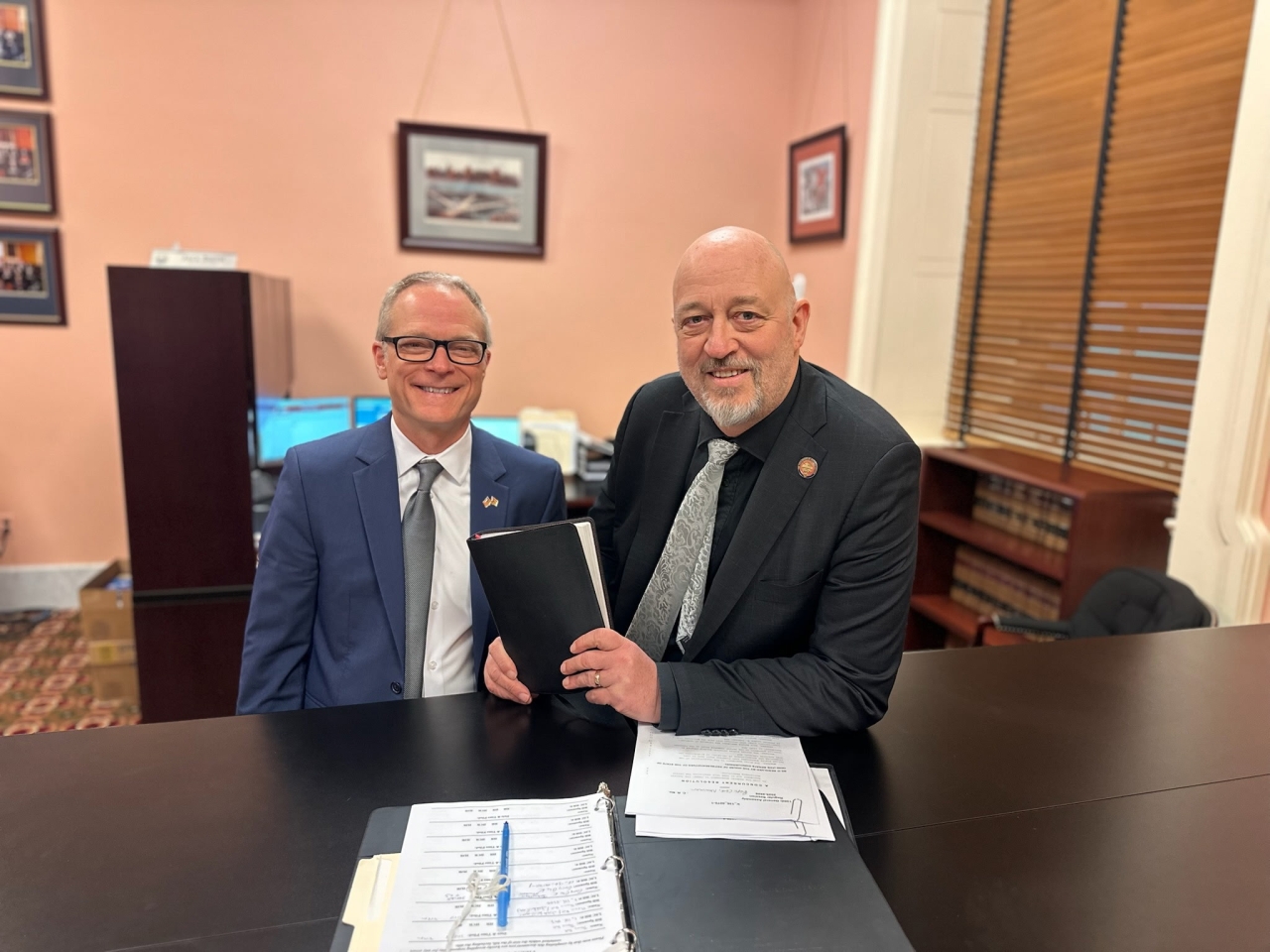The Leland Muhlenberg House Joint Resolution

The Leland Muhlenberg House Joint Resolution
The Leland Muhlenberg House Joint Resolution, recently introduced by two pastors from the House majority, Representative Gary Click (R-Vickery) and Representative Johnathan Newman (R-Troy), urges President Trump and Congress to repeal the Johnson Amendment.
If you ask the average American about the Johnson Amendment, you’re likely to receive a puzzled look or even a shrug. Despite its significant impact, this last-minute, unvetted amendment remains obscure to most. Many assume the phrase "separation of church and state" appears in the Constitution—an assumption that is false. Conversely, some deny that the nation was founded on principles of separating church and state, which is also inaccurate.
While the phrase "separation of church and state" is widely recognized, few understand its origins or implications. The Johnson Amendment, enacted in 1954, is a key contributor to this confusion.
Origins of the Johnson Amendment
In 1954, Senator Lyndon B. Johnson faced intense criticism from nonprofit organizations like Facts Forum and the Committee for Constitutional Government for branding Johnson as a "closet communist" during his re-election campaign. A shrewd politician, Johnson introduced the amendment without debate, aiming to strip tax-exempt status from politically active organizations and prohibit them from endorsing candidates.
James Davidson, professor emeritus at Purdue University, noted, "Johnson was primarily targeting by right-wing political groups like Facts Forum and the Committee for Constitutional Government. However, he worded the amendment to apply to all 501(c)(3) tax-exempt entities, including churches—not because of religion, but because they share the same tax status."¹ Johnson’s chief aide, George Reedy, confirmed that the amendment was not intended to address churches specifically.
Churches and Tax Exemption
Churches file under Section 501(c)(3) for convenience, not out of necessity. According to IRS Publication 1828, ‘Tax Guides for Churches and Other Religious Organizations’, Churches that meet the requirements of IRC Section 501(c)(3) are automatically considered tax-exempt and are not required to apply for recognition of this status from the IRS. Legal scholar Boris Bittker argued in a 1969 Yale Law School article that ‘immunity’ better describes this status than exemption. He wrote, "The term ‘exempt’ implies the authority to tax, granted as a privilege, whereas ‘immunity’ acknowledges the government’s lack of authority to regulate or tax."²
Historical Context and Religious Liberty
America was founded on the principle of religious liberty. However, there were some early mistakes in putting that ideal into practice. Some states established official religions, funded churches with taxes, and fined dissenters. Patrick Henry famously defended unlicensed pastors in court. Historically, the government’s ‘purse’—through taxation or appropriation—has been a tool to regulate religion. Although state subsidies for churches ended, threats of taxation remained – and were often used by anti-religious groups to silence public faith communities.
The Leland Muhlenberg Resolution highlights historical figures like John Peter Gabriel Muhlenberg, Frederick Augustus Muhlenberg, and John Leland, whose faith shaped America. Frederick Muhlenberg, a pastor and the first Speaker of the House, signed the Bill of Rights, which includes the ‘Free Exercise Clause’ amendment that guarantees the right to practice one’s religion without government interference.
Modern Implications
The Free Speech Fairness Act was first championed in 2015 by Representative Steve Scalise in the 114th Congress. He was later joined in 2017 by Senator James Lankford in the 116th congress. Along with the current speaker, Mike Johnson, these officials have been consistent leaders for repealing the Johnson Amendment.
On May 4, 2017, President Trump signed Executive Order 13798, ‘Promoting Free Speech and Religious Liberty.’ Although President Biden rescinded many of President Trump’s orders, this one remains intact, reflecting the bipartisan recognition that religious voters deserve a voice. The civil rights movement, led by Reverend Dr. Martin Luther King Jr. from the Dexter Avenue Baptist Church, exemplifies the power of faith in civic action. From a Birmingham jail, King himself criticized churches that avoided engagement, writing, "I have been disappointed with the church... too many have remained silent behind the anesthetizing security of stained-glass windows."
The Case for Repeal
The Johnson Amendment restricts churches’ freedom of speech, contradicting the First Amendment’s protection of free religious exercise. While debates about churches in politics are valid, the Constitution assigns that decision to churches, not the government. History supports their engagement—from the Muhlenberg brothers and John Leland to Dr. Martin Luther King and Billy Graham, faith leaders have profoundly influenced America’s founding and modern-day political realities for good.
Repealing the Johnson Amendment would restore pre-1954 standards aligned with the First Amendment. No institution played a greater role in America’s foundation than the church. Removing this amendment would reclaim the liberty on which the nation was built.
---
Since the introduction of HCR 9, Representatives Click and Newman learned that Congressman Mark Harris and Senator James Lankford have dropped the Free Speech Fairness Act, which addresses the objectives outlined in this resolution. You can learn more about that here.
**References**
¹ Davidson, James. "The Johnson Amendment and Political Activity by Churches." *Journal of Church and State*, JSTOR, https://www.jstor.org/stable/3512457.
² Bittker, Boris. "Churches, Taxes, and the Constitution." *Yale Law School Legal Scholarship Repository*, 1969.







